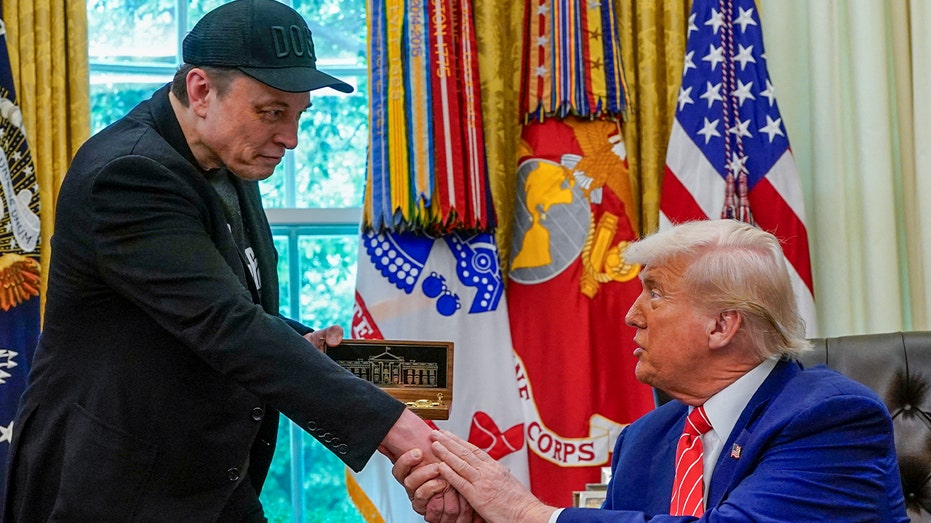Trump and Musk Feud: Who Deserves the Most Credit for Trump's Resounding 2024 Presidential Victory?
Former allies Trump and Musk clash over credit for 2024 election effort, as Musk touts battleground campaigning and fundraising.

The escalating exchange of rhetoric between President Donald Trump and tech magnate Elon Musk has fueled a heated discussion over the latter's role in influencing the outcome of the 2024 presidential race. As both men publicly trade claims about the extent of Musk’s impact, political observers and strategists are weighing in on whether Musk’s support was merely influential—or outright decisive—in Trump’s return to the White House.
Speaking with reporters, President Trump downplayed Musk’s contribution, stating, “I think I would have won” even without the billionaire’s backing. He cited his campaign’s strength and pointed to campaign chief Susie Wiles’ confidence that Pennsylvania—arguably the most crucial swing state—would have gone red regardless of any outside help. However, Musk swiftly rebutted these statements on social media, asserting, “Without me, Trump would have lost the election, Dems would control the House and the Republicans would be 51-49 in the Senate. Such ingratitude.”
The public spat comes just days after their alliance appeared to unravel, as disagreements over tax policy and fiscal spending spilled into acrimony. Despite these differences, analysts acknowledge that Musk’s full-throated endorsement and unprecedented financial contributions made a significant splash. Last year, Musk emerged as the largest single donor of the 2024 cycle, funneling nearly $300 million to America PAC, a Trump-aligned super PAC. His resources funded ads and get-out-the-vote campaigns in all major battlegrounds, but with a particularly heavy focus on Pennsylvania—a state Trump ultimately narrowly carried over opponent Kamala Harris.
Musk’s campaign involvement was highly visible. The Tesla and SpaceX CEO not only joined Trump at a pivotal rally in Butler, Pennsylvania, but also spearheaded multiple town halls across the state. Additionally, Musk established a well-resourced campaign war room in Pittsburgh, further signaling his deep investment in the election’s outcome. Republican county leaders, such as Erie County’s Tom Eddy, credit Musk’s name recognition and wealth with energizing key voter blocs that may have otherwise sat out the election.
Strategists who worked either directly or indirectly with the 2024 Trump campaign largely agree that Musk’s participation mattered—though they diverge on exactly how much. Some, like longtime consultant John Brabender, emphasize that Trump remains the central figure for voters, arguing that while support from Musk and others was helpful, it was the candidate himself who drove turnout. Others, such as Dave Carney—a veteran of several GOP presidential contests—are more willing to acknowledge the scale of Musk’s influence, touting the sophistication of America PAC’s field operations and the targeted communication strategies that helped reach low-propensity Trump supporters.
Musk’s approach did not go unchallenged. Despite his fiscal conservative evolution causing friction with Trump’s legislative agenda—particularly regarding the so-called "kill the bill" push—he maintained a relentless focus on boosting turnout for the Republican ticket, reinforcing his growing clout within conservative circles. Still, as the dust settles, many party insiders speculate that the current feud may soon give way to reconciliation, as both sides understand the value of unity ahead of future political fights.
For now, what is evident is that Musk’s foray into hardball politics has altered the dynamic at the very top of the Republican Party. Whether he was truly the kingmaker or simply one factor among many, the debate over his electoral impact is likely to persist long after the final votes have been counted.




